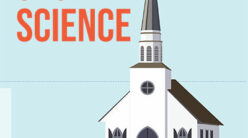Forgiveness has long laid the foundation for spiritual well-being in the Judeo-Christian tradition. But scientific research now suggests its healing power may extend beyond the sacred realm. Research shows links between forgiveness and physical and mental health.
While this may come as some surprise to secular scientists, psychologist Dan Shoultz says God has created the need to give and receive as an important part of our makeup as human beings.
“We were designed by God to not hold onto anger, revenge, bitterness, and resentment,” Shoultz says. “When we do, it’s destructive to our being, leading to a slow and insidious breakdown of the entire system.”
Because of this reality, he says that unforgiveness and its psychological baggage of hostility and bitterness can put people at risk for mental illness such as depression and anxiety-not to mention stress disorders and related physical ailments.
Rae Wolf saw firsthand how holding onto a grudge turned a stressful job situation into a full-blown health problem. After she was told she had fibroid tumors, her doctor told her stress could exacerbate the problem. As logistical coordinator for a major event, her job was stress-laden even on a good day. Still, she had no serious problems until she felt her superiors began to unfairly treat her by making capricious changes and demanding she redo long-approved work. She began bleeding profusely. Her doctor told her she would have to take it easy or she might have to be hospitalized.
“At first I thought it was just the stress that made me sick, but when I talked with my doctor, I realized that it was the anger,” Wolf says. “I knew I had to forgive those who mistreated me or I would suffer even more.”
Shoultz says actively holding on to destructive emotions or thoughts that surround an injury takes a person down a dangerous path, potentially leading from anger to bitterness and even consuming hatred. In Wolf’s case stress exacerbated an already precarious health situation, and her anger took her “over the edge.”
Michael McCullough, director of research at the National Institute for Healthcare Research, says research suggests that people with vengeful personalities and a chronic desire to retaliate, because of their high hostility, might put themselves at much higher risk for early death through cardiovascular problems. Such findings have fueled interest in studying forgiveness as a potential preventive factor for heart-related illnesses.
A small but growing body of evidence also suggests that forgiveness- particularly for severe hurts-plays a role in lowering depression and anxiety, says McCullough. It’s also been linked to small increases in self-esteem. Bol-stered by evidence that vengefulness could carry heavy physical health risks, more scientists are taking a serious look at forgiveness and how it impacts the whole person, McCullough says.
“I’m encouraged by the number of investigators who are now doing serious research on forgiveness,” McCullough says. “I feel confident that doing forgiveness research will be a good investment.”
Carl Thoresen, a professor of education, psychology, and psychiatry at Stanford University, has studied the psychosocial factors connected with cardiovascular problems for more than 20 years. He has designed training programs with several others to help people learn how to incorporate life changes that reduce the risk of a first or recurring coronary event. Currently, as part of his focus on spirituality and health, he is planning and conducting research projects involving forgiveness training. Preliminary results look promising, with measurements being taken of changes in depression, anxiety, stress, and other physical symptoms, such as blood pressure and heart rate, before and after forgiveness training as well as several weeks later. He says he hopes to demonstrate that people can learn to take less offense and use forgiveness skills when they feel offended or hurt.
Thoresen’s intervention study-the largest to date of its kind-hit a telling glitch right from the start. He noted that while almost 200 people volunteered to participate–all had a past offense or hurt they were willing to consider forgiving–the vast majority was women. Thoresen and fellow researchers, such as Fred Luskin, realized some cultural factors were at work against them as they sought to study gender differences with relation to forgiveness.
“Men just don’t seem to connect with the term `forgiveness,'” he says.
A simple name change from “forgiveness training” to “grudge management,” however, brought in male volunteers by the droves, Thoresen adds.
“Once the men came in, they were ready to do the work of managing their grudges; that is forgiveness,” he says. “They seem to have a lot of stuff they would want to unload but fewer outlets culturally than women.”
Dan Ascher says he has benefited profoundly from forgiveness training and now teaches others how to develop what he calls a biblically forgiving personality. As a young man he constantly switched jobs and was ultimately diagnosed with a failure complex. Through counseling he realized how unforgiveness toward his verbally abusive father had locked him into a self-destructive life pattern.
“Forgiving my dad was one of the most significant events of my life,” Ascher says. “I have other siblings who still struggle with bitterness, and I see how it’s destroying their lives and negatively impacting their significant relationships. I would be there too, confused and still running from relational problems, if God hadn’t dealt with me.”
Thoresen says he and his staff have been amazed by the lack of understanding within the general public about what forgiveness entails.
“Nine out of ten people think it’s a simple decision–either you decide to do it or you don’t,” he says. “The general public also doesn’t seem to understand the power of forgiveness and that it takes lots of courage and commitment to forgive–not the stuff of weak and spineless folks.”
“Although churches commonly advocate it, they rarely teach people the social and personal skills needed to forgive those who have hurt them and for whom they feel resentment-if not anger and fear,” he adds.
Until she was 40, Jo Taich says it never occurred to her to forgive her father, who abandoned her family when she was a young girl. She says it was a counseling program at the Atlanta-based Grace Ministries International that opened her eyes.
“I had always thought anger was a part of who I was, and I finally realized it didn’t have to be,” she says. “No one ever taught me about forgiveness other than God’s forgiveness. Looking back
I sure wish they had. I could have avoided a lot of life’s pain if I’d learned this at 13. I thought that by hating my father I was paying him back, but I was just hurting myself. He didn’t know I was losing sleep or that a cloud hung over my soul.”
Thoresen believes forgiveness education, couched in terms of stress management and conflict resolution, could open the extraordinary potential people have to resolve perceived hurts and offenses. He sees such education as a powerful preventive measure both in terms of physical and mental health. But practice, he believes, is the only way people will learn to use forgiveness. The corrective feedback people receive during forgiveness training enables them to fine-tune their efforts for better health. He also believes it will raise the bar or threshold for taking offense in the first place.
Though forgiveness may have ties to better health, research indicates that motive may play an important role in determining the actual benefits. The short of it: If you forgive just to gain benefits for yourself, you’ll likely truncate the process and fall short in terms of real benefits, according to McCullough. In To Forgive Is Human, a book he cowrote with Steven Sandage and Everett Worthington, the authors review research demonstrating the critical role of motivation in forgiveness.
In discussing an early study of forgiveness they write: “Forgiving for the sake of the offender, their relationship, or for the intrinsic value placed on forgiveness . . . was related to better health. Forgiving as a way of seeking personal benefits or in order to live up to the expectations of other people . . . was not related to better health”.
McCullough has found that empathy, the ability to develop understanding for the offender’s situation and sympathetic emotion for the offender, serves as a key motivation for genuine forgiveness. In one research endeavor two experimental groups were taught the health value of forgiveness and exhorted to practice forgiveness. One of those groups was also taught empathy skills. That group was much more effective over the long haul in genuinely forgiving offenders.
Genuine forgiveness is hard work– not the stuff of doormats and wallflowers as the American culture of rugged individualism and competition would have us believe. Despite the difficulty of issuing genuine forgiveness, increasing evidence suggests that the work of forgiveness is well worth the effort. Psychologists now say that those who forgive operate from a position of strength in terms of physical and mental health as unforgiveness exacts its heavy toll. As secular researchers probe this spiritual law they continue to find that the cost of unforgiveness may simply be too high to pay.






